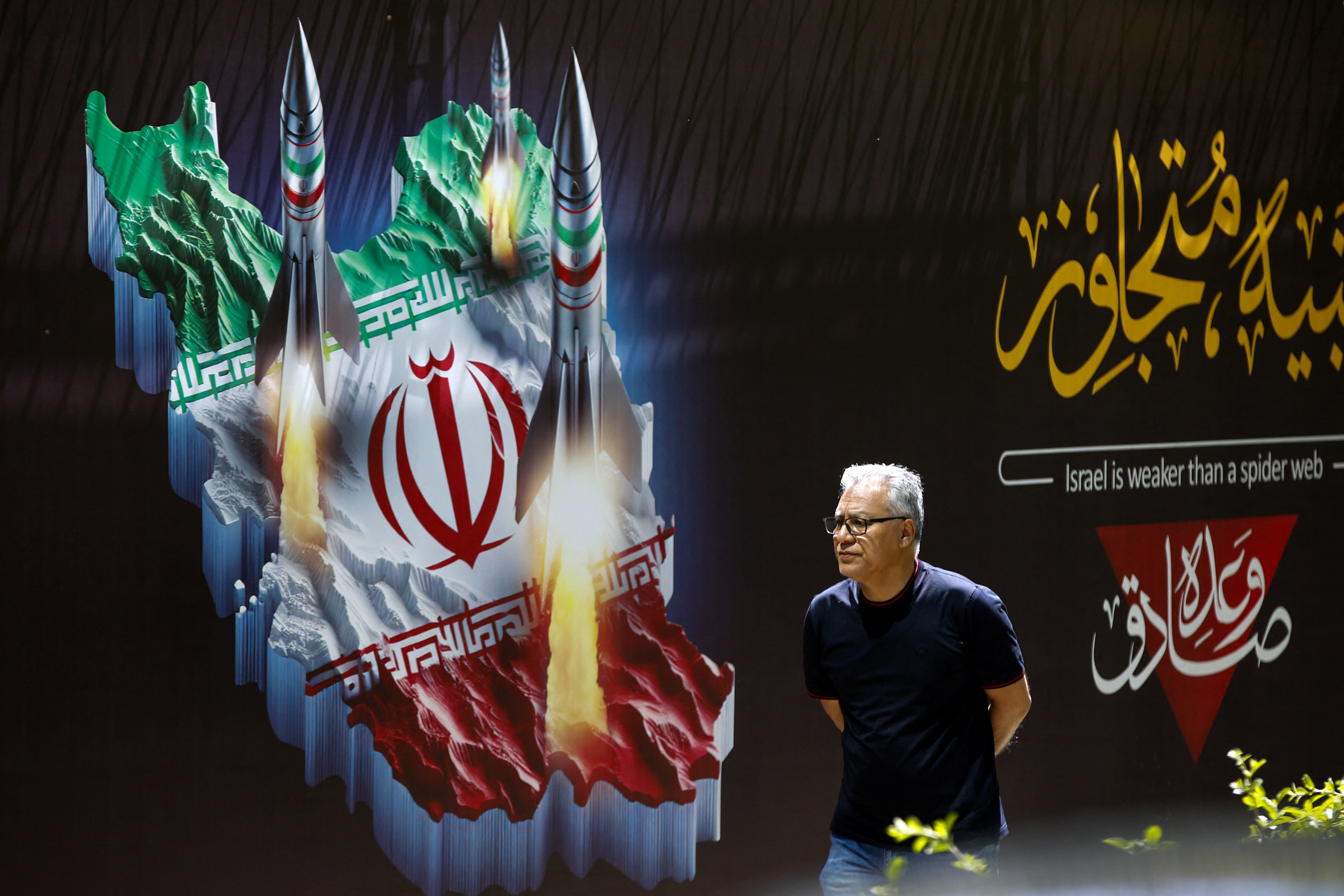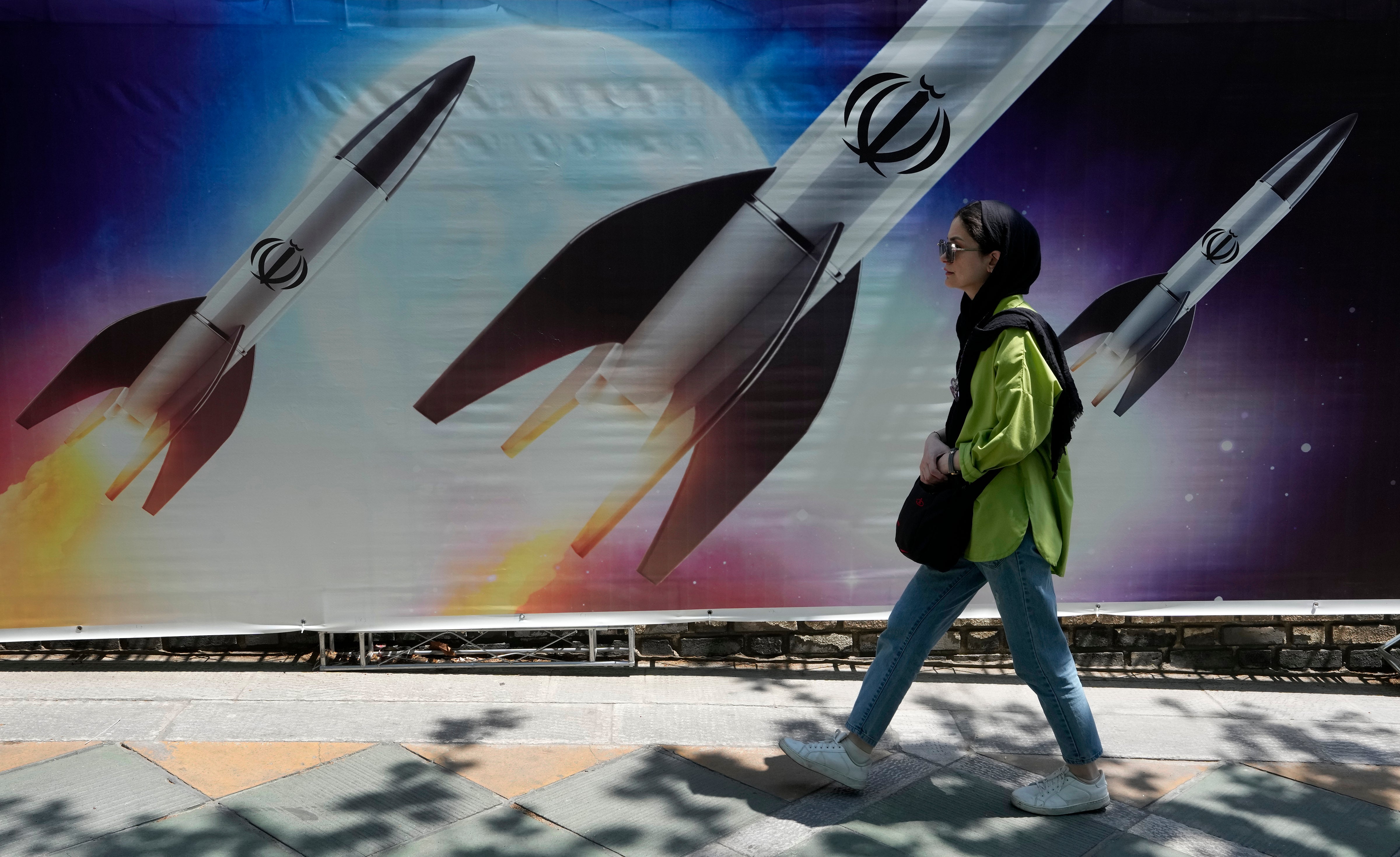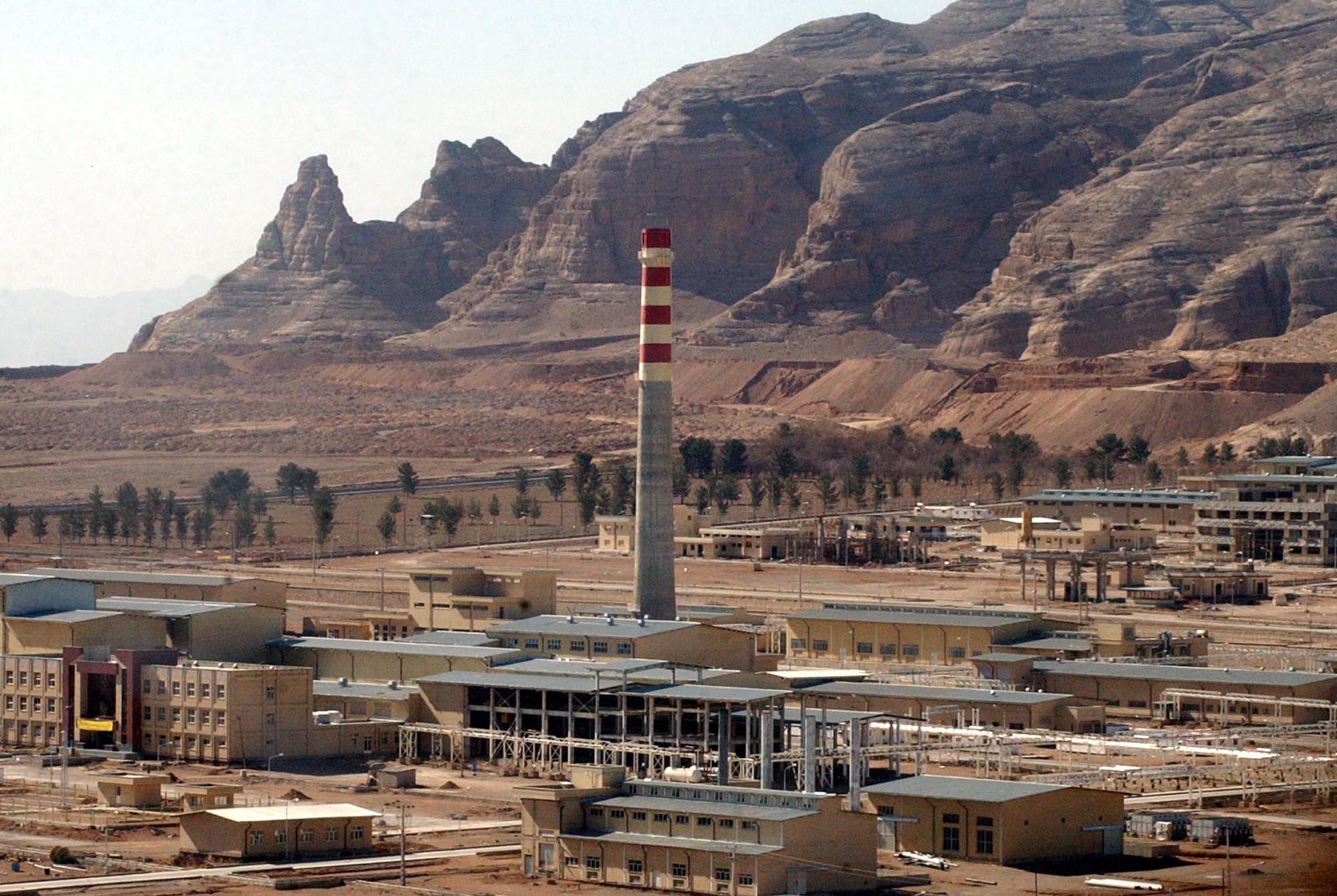How many nuclear weapons do Israel and Iran have amid fears of wider conflict
The UN warned the Middle East is on the ‘precipice’ of a wider war amid tit-for-tat conflict between Israel and Iran
Your support helps us to tell the story
This election is still a dead heat, according to most polls. In a fight with such wafer-thin margins, we need reporters on the ground talking to the people Trump and Harris are courting. Your support allows us to keep sending journalists to the story.
The Independent is trusted by 27 million Americans from across the entire political spectrum every month. Unlike many other quality news outlets, we choose not to lock you out of our reporting and analysis with paywalls. But quality journalism must still be paid for.
Help us keep bring these critical stories to light. Your support makes all the difference.
On Friday morning, Iranians walked down the streets of Tehran next to posters adorning the country’s national flag with three depictions of missiles being fired from it.
“Israel is as weak as a spider web”, one poster read. Just hours before, explosions were heard over an airbase 200 miles south of the city in Isfahan.
Tehran’s defences had shot down three drones launched from over 1,200 miles away in Israel - said to be part of Netanyahu’s “response” for an earlier attack by Iran which saw over 300 missiles and drones fired at the Jewish state.
So far, the tit-for-tat conflict has been limited to conventional warfare with the use of attack drones, cruise missiles and ballistic weapons - with the UN warning the region was on the precipice of a devasting war.
But what is the risk of the conflict turning nuclear? And does Israel or Iran have nuclear weapons? The Independent takes a look below.

Does Israel have nuclear weapons?
Israel has always refused to confirm its possession of a nuclear arsenal and maintains a policy of strategic ambiguity throughout the region.
The country’s ballistic missile programme, called Jericho, is highly classified. Few details are in the public domain, but the International Institute for Strategic Studies (IISS) estimates Israel has around 24 nuclear-capable missiles.
In general, Israeli leaders do not say much about their country’s atomic capabilities. But in November, far-right cabinet minister Amichai Eliyahu claimed it was an option to launch a nuclear strike on the Gaza strip - comments that were quickly disavowed by Benjamin Netanyahu.
In 2016, a leaked cache of emails from former US secretary of state Colin Powell included one that read: “The boys in Tehran know Israel has 200 [nuclear weapons], all targeted on Tehran, and we have thousands.”

Does Iran have nuclear weapons?
Iran does not have nuclear weapons, but has several nuclear facilities across its territory which experts fear are being used to develop them. Tehran claims they are for civilian use.
In 2016, the country signed the Joint Comprehensive Plan of Action - widely known as the Iran nuclear deal - which lifted sanctions and around $100bn of frozen funds in exchange for an end to atomic weapon research.
However, former US president Donald Trump withdrew from the accord in 2018 over fears Iran was still developing ballistic missiles and funding its proxy forces across the region.
Since then, Tehran has continued to enrich uranium at these sites of rates up to 60 per cent purity - which exceeds needs for commercial use and is just a step away from weapons-grade 90 per cent, according to the International Atomic Energy Agency.

That means Iran’s so-called “breakout time” - the time it would need to produce enough weapons-grade uranium for a nuclear bomb - is between six months to a year, according to experts.
Iran also vowed to revise its weapons doctrine if its nuclear sites were targeted by Israel before the attack on Friday morning.
What happens next?
So far, it is unclear. Israel maintains its policy of strategic ambiguity and Iran has immediately downplayed the severity of Israel’s attack - saying it would not respond.
A senior official said the country was looking at it more as an “infiltration” rather than an “external attack” - but previously Iran’s president said an attack would be met with a “severe response”.
Subscribe to Independent Premium to bookmark this article
Want to bookmark your favourite articles and stories to read or reference later? Start your Independent Premium subscription today.

Join our commenting forum
Join thought-provoking conversations, follow other Independent readers and see their replies
Comments